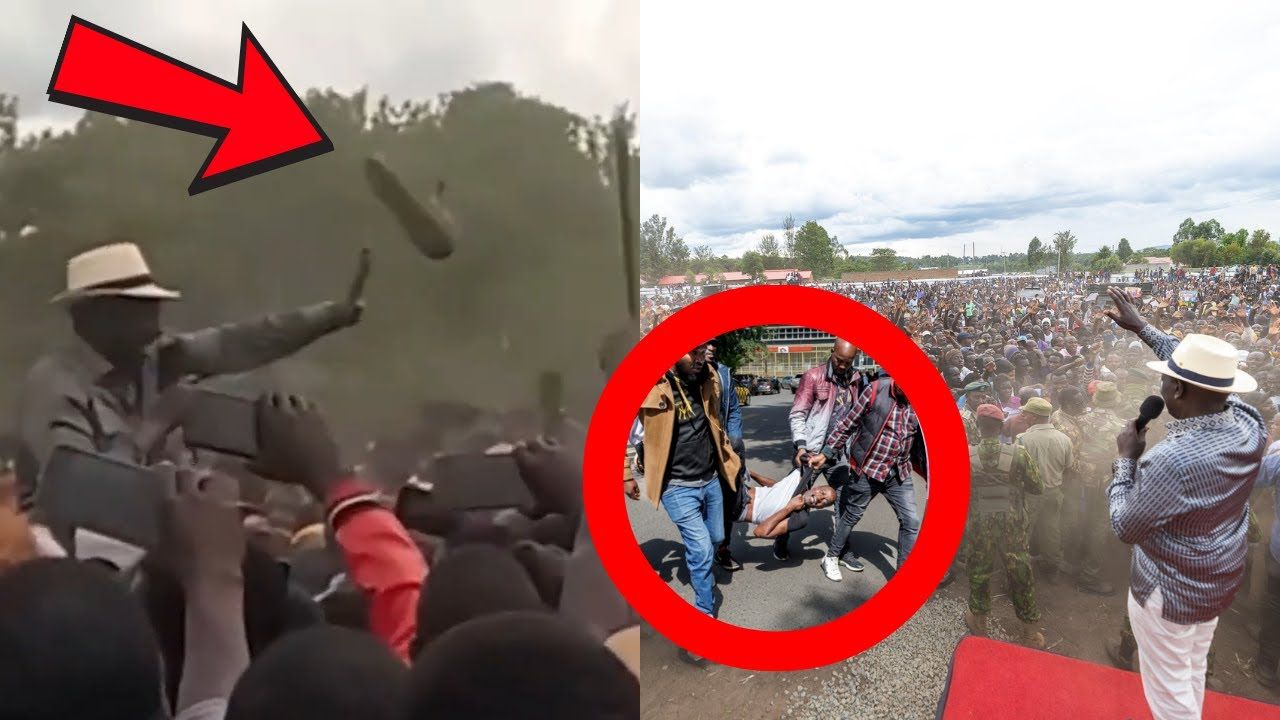President Ruto was targeted by a shoe during a public speech, sparking online uproar.
Many Kenyans found humor and relief in the incident, turning it into a viral moment.
Others emphasized respect for the presidency, regardless of political opinion.
The incident exposed deep national frustration amid economic and social struggles.
Debate ensues: Is this protest or indecency? A joke or a desperate cry for change?
Kenyans React to Ruto’s Shoe Incident: Laughter, Outrage, and Everything In Between
A Quick Recap of This Story
The Incident that Shocked, Amused, and Divided a Nation
It wasn’t just a shoe. It was a symbol. A split-second, spontaneous act that launched Kenya into a flurry of memes, moral debates, and national reflection. During a recent public appearance, President William Ruto found himself dodging an unexpected projectile—a shoe hurled from the crowd. What followed wasn’t merely security shuffles or news flashes. It was a digital storm echoing the country’s strained relationship with leadership, economic hardship, and civic frustration.
A Country's Mood, Captured in Reactions
From laughter to lamentation, Kenyans took to the internet in their thousands, not just to comment on the aim of the mysterious shoe-thrower, but to unpack what it really meant. Was it just comic relief in difficult times? Or a disgraceful act that disrespected the nation’s highest office?
Some netizens dubbed the footwear a national treasure: “Shooe-ja!! That shoe deserves an award,” one user quipped, instantly birthing the now-viral term. Others saw the act as cathartic. “Wakenya jameni aki mmechoka sio mchezo,” someone wrote, echoing a sentiment that many could relate to—genuine exhaustion with the state of affairs.
But not everyone was amused.
Between Disrespect and Desperation
Calls for respect surfaced swiftly. Many felt the gesture crossed a red line. “We might not be happy with him but he is the symbol of the nation,” cautioned one concerned citizen. Another added, “May the Almighty God protect our president,” defending not just the man, but the dignity of the office.

Still, even those urging for restraint didn't hide their weariness. “Ngojeeni 2027 mtoe yeye,” said one commenter, referencing the next election with a plea for patience. Others took a more spiritual route, asking God to intervene, not only for the president’s sake, but for a country reeling from economic distress and political distrust.
Humor as a Coping Mechanism
In typical Kenyan fashion, satire wasn’t far behind. From dubbing the attacker “Shoe Ter” to jokes about the shoe’s resale value (“This shoe can go for 100M”), citizens wielded humor like a shield. The phrase “Tupunguze garama” (reduce the cost) became both a meme and a protest chant, layered with sarcasm and sincere demand.
Even the dust cloud that followed the flying shoe didn’t escape ridicule. “Kiatu ilikuja na vumbi,” one commenter laughed, poking fun at the dramatic spectacle.
The Symbolism Beyond the Sole
What turned a shoe into a political statement was not its speed, but its symbolism. In the face of rising inflation, youth unemployment, and a feeling of betrayal by elected leaders, a solitary act of defiance—no matter how crude—touched a nerve. It wasn’t organized, but it was loud. It wasn’t sanctioned, but it was understood. In many ways, it mirrored the unfiltered thoughts of a nation no longer willing to remain silent.
Yet, the act also raises critical questions: Where does protest end and disrespect begin? Can desperation justify insult? And in a democracy, how do we balance freedom of expression with dignity for leadership?

0 comments
Be the first one to comment, but before that...
Here are some best practices for writing comments: